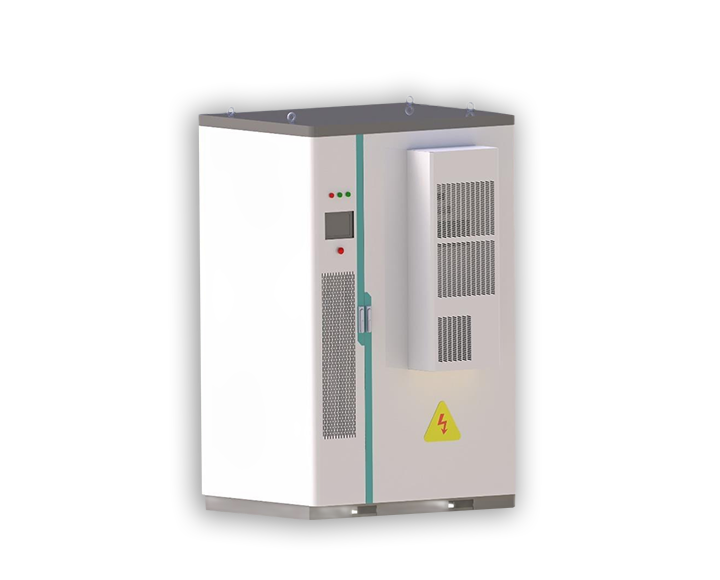Exploring the Advantages of Cabinet Lithium-Ion Batteries for Commercial and Industrial Applications
Exploring the Advantages of Cabinet Lithium-Ion Batteries for Commercial and Industrial Applications
Table of Contents
1. Introduction to Cabinet Lithium-Ion Batteries
2. Advantages of Cabinet Lithium-Ion Batteries
2.1 High Energy Density
2.2 Long Lifespan and Durability
2.3 Rapid Charging Capabilities
2.4 Low Maintenance Requirements
2.5
2025-06-09

Exploring the Advantages of Cabinet Lithium-Ion Batteries for Commercial and Industrial Applications
Table of Contents
- 1. Introduction to Cabinet Lithium-Ion Batteries
- 2. Advantages of Cabinet Lithium-Ion Batteries
- 2.1 High Energy Density
- 2.2 Long Lifespan and Durability
- 2.3 Rapid Charging Capabilities
- 2.4 Low Maintenance Requirements
- 2.5 Enhanced Safety Features
- 3. Applications in Commercial and Industrial Settings
- 4. Comparison with Other Battery Technologies
- 5. Environmental Impact and Sustainability
- 6. Frequently Asked Questions (FAQs)
- 7. Conclusion
1. Introduction to Cabinet Lithium-Ion Batteries
In today's fast-paced commercial and industrial environments, efficient energy storage solutions are critical for operational success. Cabinet lithium-ion batteries represent a significant advancement in battery technology, offering a compact and scalable energy storage option ideal for various applications, from powering machinery to supporting renewable energy systems. These batteries provide reliable performance, energy efficiency, and a host of advantages tailored to meet the demands of modern industries.
2. Advantages of Cabinet Lithium-Ion Batteries
Cabinet lithium-ion batteries deliver numerous benefits that set them apart from traditional battery technologies. Here, we explore their key advantages in detail.
2.1 High Energy Density
One of the standout features of cabinet lithium-ion batteries is their **high energy density**. This characteristic allows them to store more energy in a smaller footprint, making them perfect for applications where space is at a premium. With the ability to deliver significant amounts of power, these batteries support heavy-duty operations without requiring the extensive physical space that lead-acid or other traditional batteries demand.
2.2 Long Lifespan and Durability
Cabinet lithium-ion batteries excel in terms of **lifespan**. Typically, they can last for 10 to 15 years with proper management, significantly outpacing conventional battery systems. The durability of these batteries translates into lower replacement costs and less downtime, allowing businesses to focus on productivity rather than maintenance.
2.3 Rapid Charging Capabilities
The **rapid charging capabilities** of cabinet lithium-ion batteries stand out as a game changer for industries that require quick turnaround times. Unlike traditional batteries that may take hours to recharge, lithium-ion options can achieve significant charge levels in much shorter periods. This efficiency minimizes downtime and enhances operational efficiency, making them an ideal choice for fast-paced environments.
2.4 Low Maintenance Requirements
Maintenance is a critical concern for any battery system. Cabinet lithium-ion batteries require minimal maintenance compared to their counterparts. There’s no need for regular watering or equalizing charges, which are often necessary for lead-acid batteries. This low-maintenance requirement reduces labor costs and minimizes operational interruptions, allowing businesses to allocate resources more effectively.
2.5 Enhanced Safety Features
Safety is paramount in industrial settings. Cabinet lithium-ion batteries come equipped with advanced safety features, including thermal management systems and battery management systems (BMS) that monitor conditions and prevent issues such as overheating or overcharging. These safety mechanisms enhance the reliability of battery use in critical applications, giving businesses peace of mind when integrating energy storage solutions.
3. Applications in Commercial and Industrial Settings
Cabinet lithium-ion batteries are versatile and suitable for a wide range of commercial and industrial applications. Their adaptability makes them an excellent choice for:
3.1 Renewable Energy Integration
As industries increasingly pivot towards sustainable energy solutions, cabinet lithium-ion batteries play a vital role in **renewable energy storage**. They efficiently store energy generated from solar panels or wind turbines, enabling businesses to use this energy during peak demand times, thus reducing reliance on grid power and lowering energy costs.
3.2 Backup Power Systems
In scenarios where power continuity is essential, cabinet lithium-ion batteries serve as robust **backup power systems**. They ensure that critical operations remain uninterrupted during power outages, enhancing business resilience and safeguarding sensitive equipment.
3.3 Electric Vehicle Charging Stations
As electric vehicles (EVs) gain popularity, cabinet lithium-ion batteries are becoming integral components of **EV charging stations**. Their rapid charging capabilities and high energy density enable efficient charging processes, supporting the growing demand for sustainable transport solutions.
3.4 Industrial Automation and Robotics
In industrial automation, cabinet lithium-ion batteries power **robots and automated systems**, providing the necessary energy for high-performance operations. Their reliability and efficiency facilitate seamless workflows in manufacturing and logistics.
4. Comparison with Other Battery Technologies
When comparing cabinet lithium-ion batteries to other battery technologies, such as lead-acid or nickel-cadmium, several crucial differences emerge.
4.1 Cost Efficiency
While the initial investment for cabinet lithium-ion batteries may be higher, their long lifespan and low maintenance requirements lead to lower overall costs. In contrast, lead-acid batteries may have a lower upfront cost but often require more frequent replacements and maintenance, increasing long-term expenses.
4.2 Performance Consistency
Cabinet lithium-ion batteries consistently perform well under various load conditions, unlike lead-acid batteries that may suffer from performance degradation over time. This consistency is essential for industries that rely on stable power supply for operations.
5. Environmental Impact and Sustainability
As industries push towards greener practices, the environmental impact of energy storage solutions becomes a focal point. Cabinet lithium-ion batteries offer a more sustainable option than traditional batteries. Their recyclability and reduced carbon footprint contribute positively to environmental goals.
6. Frequently Asked Questions (FAQs)
6.1 What are the typical applications of cabinet lithium-ion batteries?
Cabinet lithium-ion batteries are commonly used in renewable energy systems, backup power solutions, electric vehicle charging stations, and industrial automation.
6.2 How do cabinet lithium-ion batteries compare in cost to traditional battery technologies?
While they may have a higher upfront cost, their longevity and low maintenance make them more cost-effective in the long run compared to traditional batteries.
6.3 Are cabinet lithium-ion batteries safe for industrial use?
Yes, cabinet lithium-ion batteries are equipped with advanced safety features that minimize risks associated with overheating and charging, making them safe for industrial applications.
6.4 How long do cabinet lithium-ion batteries typically last?
With proper care and management, cabinet lithium-ion batteries can last between 10 to 15 years, significantly longer than traditional lead-acid batteries.
6.5 What maintenance do cabinet lithium-ion batteries require?
Cabinet lithium-ion batteries require minimal maintenance, primarily involving monitoring through their battery management systems (BMS) to ensure optimal performance.
7. Conclusion
Cabinet lithium-ion batteries represent a transformative solution for commercial and industrial applications, offering significant advantages in energy density, lifespan, rapid charging, and safety. As industries increasingly prioritize efficiency and sustainability, these batteries are set to play a crucial role in tomorrow's energy landscape. Understanding their benefits can help businesses leverage these advanced storage solutions to enhance operational efficiency and support their long-term energy goals. By choosing cabinet lithium-ion batteries, companies can position themselves at the forefront of energy innovation, ultimately leading to improved productivity and reduced environmental impact.
Key words:
Related News


